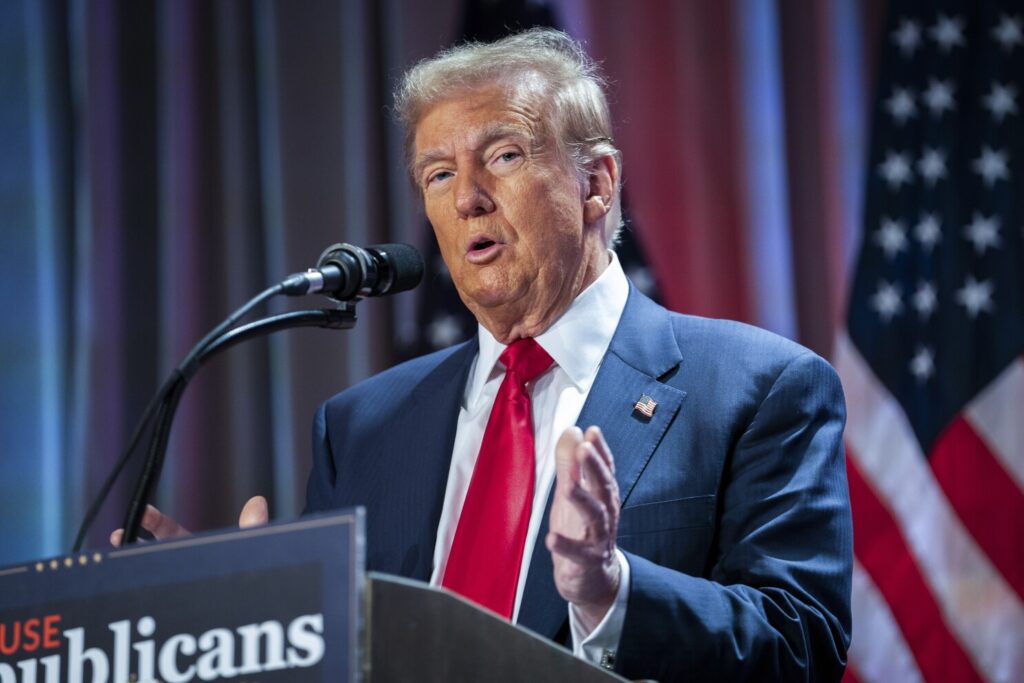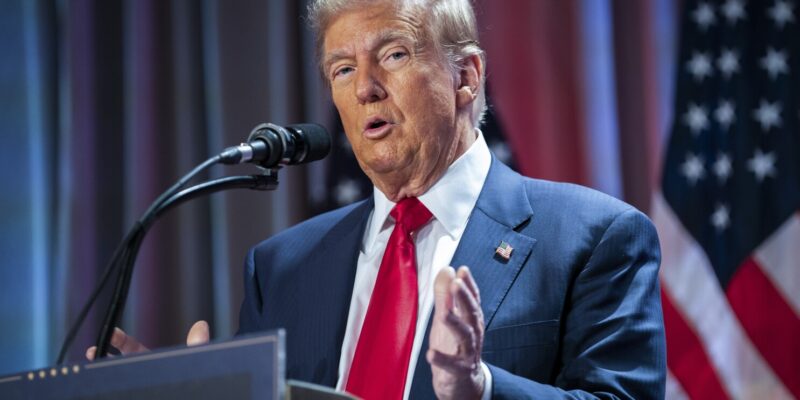
FILE – President-elect Donald Trump speaks during a meeting with the House GOP conference, Nov. 13, 2024, in Washington. (Allison Robbert/Pool via AP, File)
The United States, under President Donald Trump’s new administration, has formally rejected a series of amendments to the World Health Organization’s (WHO) International Health Regulations, arguing that the changes infringe on national sovereignty and individual freedoms.
In a joint statement issued Friday, Secretary of State Marco Rubio and Health and Human Services Secretary Robert F. Kennedy Jr. stated that the amendments — adopted last year by the World Health Assembly in Geneva — “risk unwarranted interference with our national sovereign right to make health policy.”
“We will put Americans first in all our actions and we will not tolerate international policies that infringe on Americans’ speech, privacy or personal liberties,” the statement read.
The amendments, which include a new commitment to global “solidarity and equity,” were designed to improve pandemic response coordination and provide special attention to the needs of developing countries. They follow the Assembly’s failure to finalize a broader pandemic treaty last year.
While most nations have since signed a new treaty agreed upon this May, the United States — in the process of exiting the WHO after Trump’s return to office on January 20 — opted out of the negotiations.
The State Department clarified that despite its withdrawal, language in the WHO amendments would still have been binding on the U.S. without formal rejection.
WHO Director-General Tedros Adhanom Ghebreyesus expressed regret over the U.S. decision, saying in a statement posted on X (formerly Twitter) that the organization “is clear about member states’ sovereignty” and cannot impose lockdowns or similar domestic measures.
Secretary Rubio and Secretary Kennedy further criticized the WHO’s perceived susceptibility to political influence, especially during global health emergencies, citing past concerns about China’s role in early pandemic response.
The Biden administration had previously supported the reforms, with former Secretary of State Antony Blinken calling the amendments a step forward in global health cooperation. However, Biden officials had also pushed for stronger protections of U.S. intellectual property rights related to vaccine development during negotiations in mid-2024.
Countries were given until Saturday to file objections to the amendments. The U.S. joins a small but vocal opposition, including conservative activists and vaccine skeptics in the U.K. and Australia, who have criticized the WHO’s expanding influence under the amendments.
Despite Washington’s stance, WHO maintains that the revisions are aimed at strengthening global collaboration while respecting national authority, a balance that continues to be a point of contention in the geopolitics of pandemic preparedness.

Comments